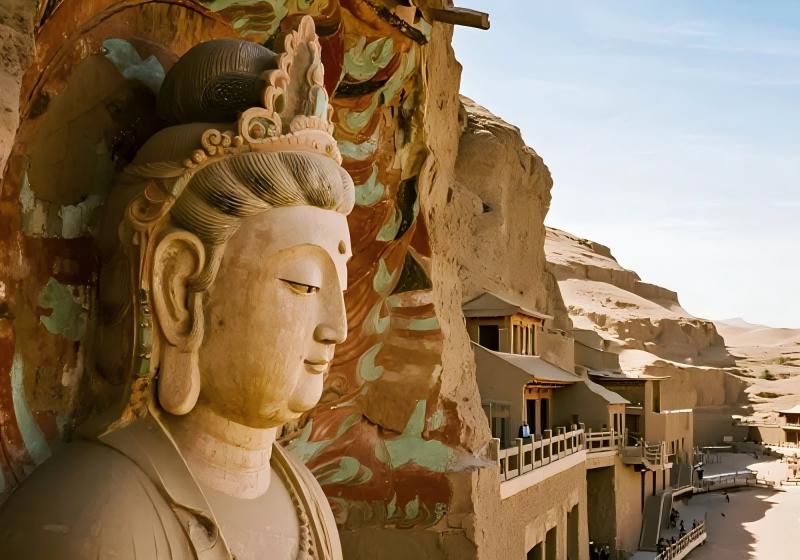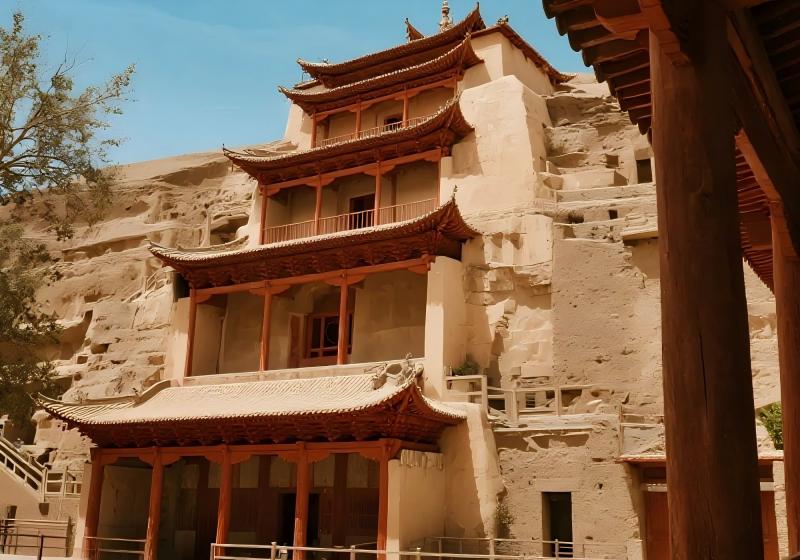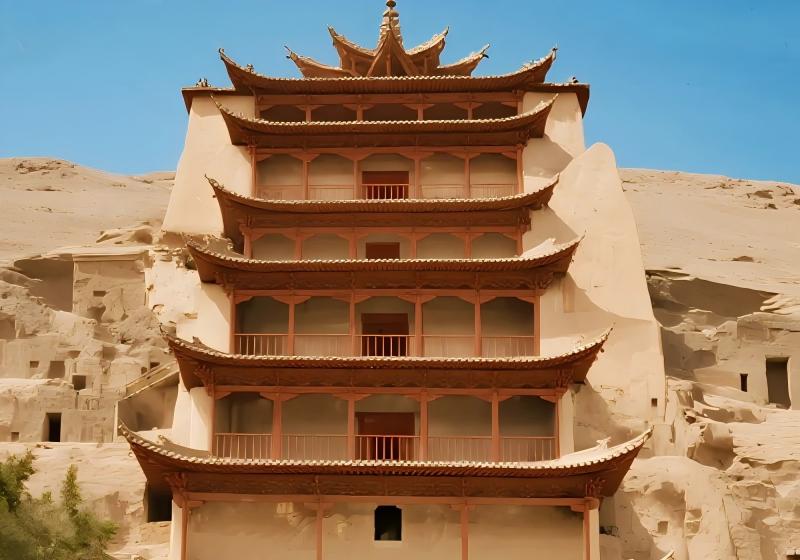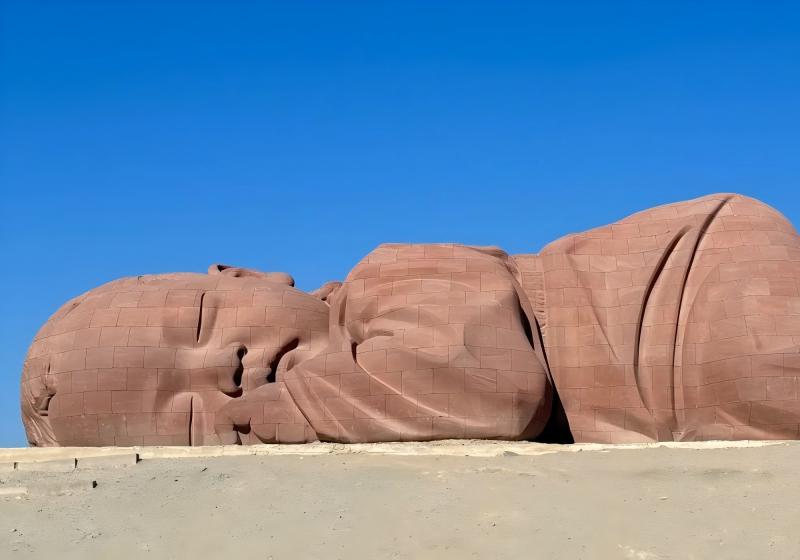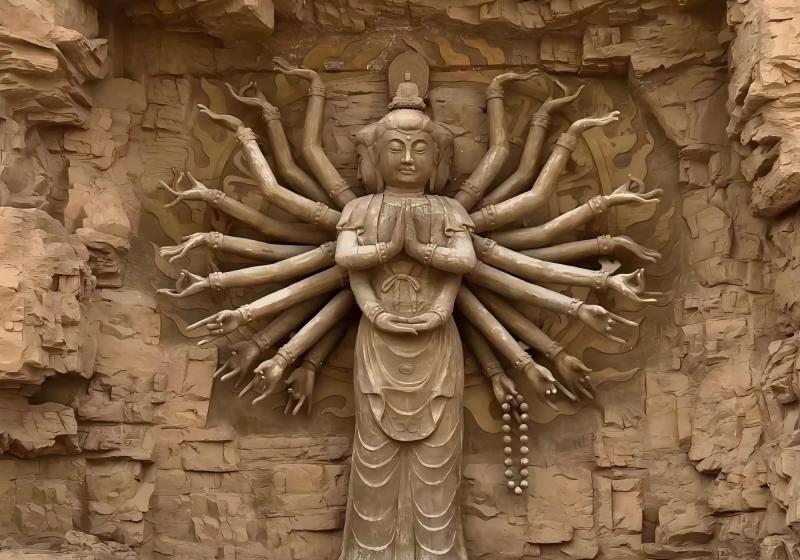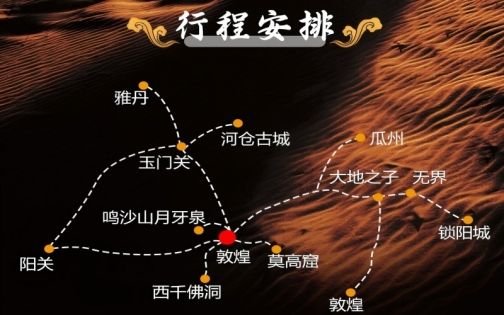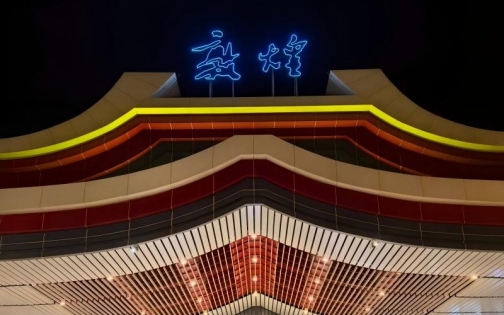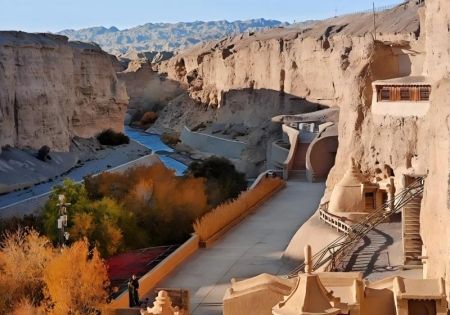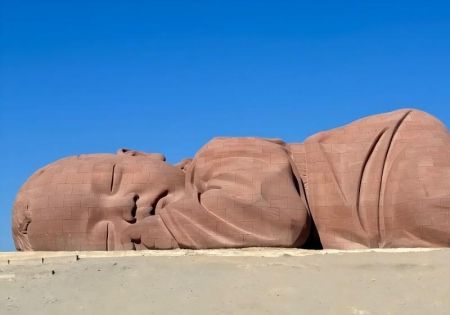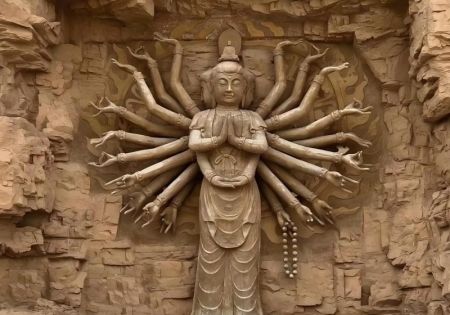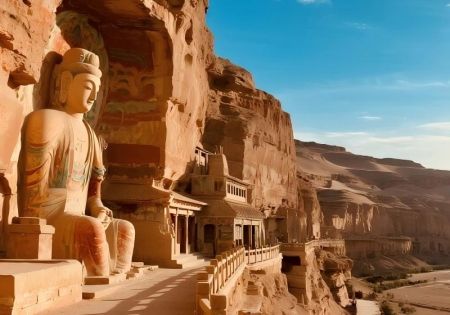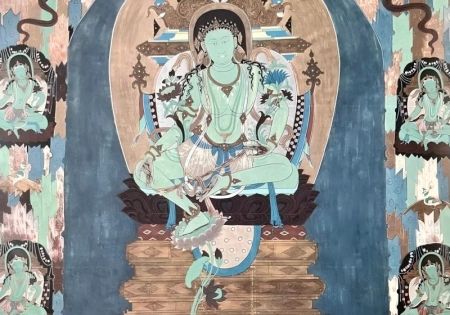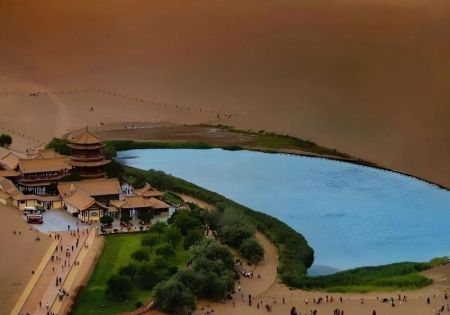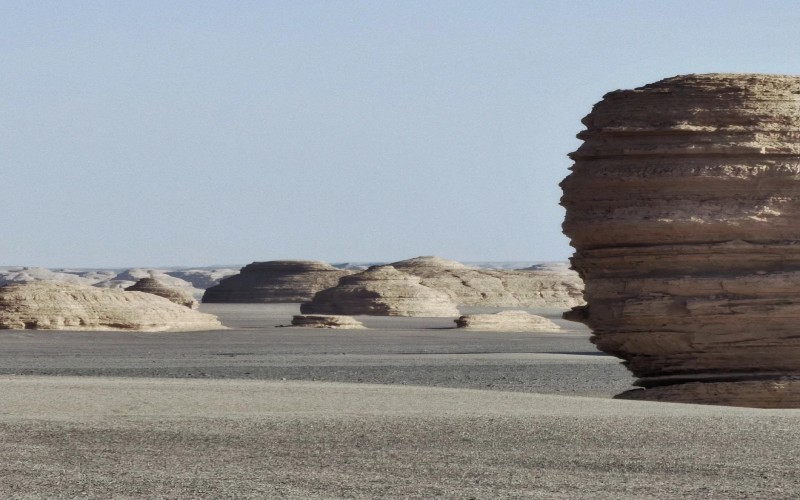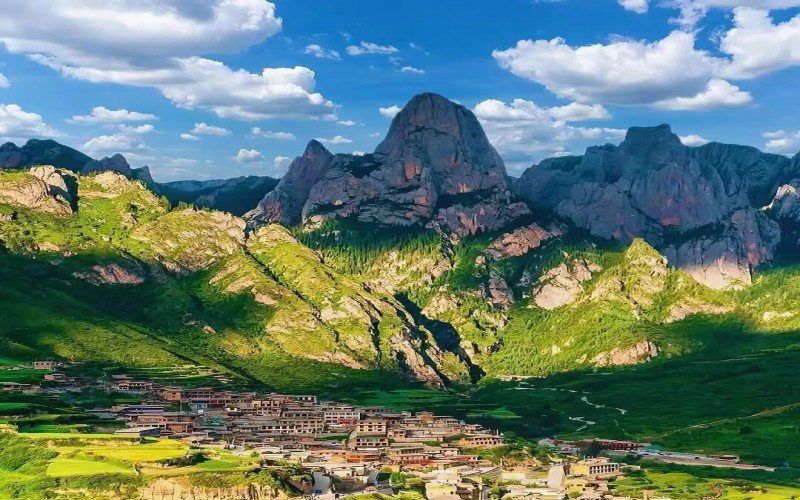
Details
Arrival — Dunhuang Airport / Railway Station — Hotel Check-in
Arrive in Dunhuang and follow in the footsteps of the ancient poet Wang Zhihuan. Stand at the Yumen Pass and Xiaofangpan City ruins, gaze at these weathered earthen fortresses that have stood for over two millennia, and feel the desolation behind the verse “The spring breeze never crosses Yumen Pass.” Imagine the galloping horses of General Huo Qubing and the melody of Wang Zhaojun’s pipa echoing across the northwest desert. In the evening, head to Shazhou Night Market for a bowl of donkey meat noodles, grilled skewers, and a vibrant taste of Dunhuang’s nightlife.
Warm Tips:
-
How to get to Dunhuang:
• Flights from Beijing, Shanghai, Guangzhou, Hangzhou, Xi’an, Chengdu, Lanzhou, Xining, etc. (frequent seasonal discounts!)
• High-speed trains connect from Lanzhou, Zhangye, Jiayuguan, and Jiuquan. Liuyuan Station (100 km from Dunhuang) also operates trains to Hami, Xinjiang. -
Transfer to hotel:
Our staff will contact you in advance and arrange airport/station pickup according to your arrival time. -
Before departure:
Staff will reach out one day before your trip—please keep your phone reachable.
Meals: Not included
Accommodation: 4-star luxury hotel
Dunhuang — Guazhou — Dunhuang (370 km / ~6 hrs)
After breakfast, visit Yulin Grottoes, also known as the “Valley of Ten Thousand Buddhas.” Built during the Northern Wei Dynasty, the grottoes line the cliffs along the Yulin River gorge. As a sister site of Mogao Caves, Yulin holds 43 well-preserved mural caves—China’s second-largest mural treasury after Mogao.
Continue to Suoyang City, a Tang-dynasty fortress on the Gobi, with a distinctive Yuan-era pagoda in the northeast corner. Return to Dunhuang, stopping at popular outdoor art installations “Children of the Earth” and “Boundless” along the Hexi Corridor.
Evening at leisure (recommended: Shazhou Night Market).
Warm Tips:
Shazhou Night Market features local snacks, handicrafts, BBQ streets, and Dunhuang specialties.
Temperatures vary greatly; pack sunscreen, jacket, hat, and drink plenty of water.
Meals: Breakfast; Lunch & Dinner not included
Accommodation: 4-star luxury hotel
Dunhuang — Yumen Pass — Western Thousand Buddha Caves — Dunhuang (180 km / ~3.5 hrs)
After breakfast, drive to Yumen Pass, the Han Dynasty’s key gateway to the Western Regions. Continue to Dafangpan City (Heicang City), an ancient military granary and beacon-tower supply base along the Great Wall. Visit the Han Great Wall Ruins, imagining how these low remnants once defended China’s vast frontier.
After lunch, tour Western Thousand Buddha Caves, older than Mogao, especially famous for its exquisite Northern Wei murals.
Later, head to Dunhuang Impression Desert Camp for sand-sliding, ATV riding, dune hiking, and sandcastle building. Enjoy a BBQ buffet dinner and hotpot at the camp, followed by a bonfire party and music.
Meals: Breakfast; Lunch & Dinner not included
Accommodation: 4-star luxury hotel
Dunhuang → Mogao Grottoes → Mogao Grottoes (a top-class grotto) → Dunhuang Academy → Dunhuang (40km, approx. 1 hour)
After breakfast, visit the world-famous Mogao Caves. Before entering the grottoes, watch two introductory films—A Thousand Years of Mogao and the dome film Dreaming Buddha Palace—for an overview of Dunhuang art history.
With a professional guide, visit 8–12 caves (winter season includes 12 caves). Discover mural styles across dynasties, learn the origin of the Nine-Colored Deer story, and immerse yourself in the artistic grandeur of Dunhuang.
In the afternoon, we will visit the Dunhuang Academy to see some historical sites in Northwest China.
Meals: Breakfast; Lunch & Dinner not included
Accommodation: 4-star luxury hotel
Dunhuang – Mingsha Mountain and Crescent Lake – Dunhuang Museum – Dunhuang Mountain Villa – Dunhuang (40km, about 1 hour)
Today we will begin at Mingsha Mountain and Crescent Lake, where golden sand dunes meet clear springs, creating a spectacular landscape. We can hike up the sand dunes and take stunning photos of the desert. At noon, we will enjoy a delicious meal and take a short rest at Dunhuang Mountain Villa.
In the afternoon, we will visit the Dunhuang Museum to gain a deeper understanding of Dunhuang’s thousand-year-old culture through the precious cultural relics and Silk Road exhibition area. In the evening, we can go to Shazhou Night Market to sample local snacks. This one-day itinerary will satisfy your desire for scenery, culture, and food all at once.
Meals: Breakfast; Lunch & Dinner not included
Accommodation: — 4-star luxury hotel
Airport transfer and return trip
We will take you to Dunhuang Airport and Railway Station. You will then depart Dunhuang on your own and return home.
Meals: Breakfast; Lunch & Dinner not included
Accommodation: — return home
Dates & Prices
| Month | Date | Price | Booking |
|---|---|---|---|
| Dec | 2025-12 | $ 1014 | Book now |
| Jan | 2026-01 | $ 1014 | Book now |
| Feb | 2026-02 | $ 1014 | Book now |
| Mar | 2026-03 | $ 1267 | Book now |
You are consulting 2025-04-12 A Six-Day Trip to Dunhuang: Mogao Grottoes and Crescent Lake – An Exquisite and Enjoyable Experience
Fee Description
Inclusions
• 4-star luxury hotels throughout the trip
• Entrance tickets: Yulin Grottoes, Suoyang City, Yumen Pass, Xiqianfo Caves, Mogao Caves, Special Caves, Mingsha Mountain & Crescent Lake, “Meet Minerals” Workshop
• Meals: Breakfast is included in the hotel accommodation; lunch and dinner are at your own expense.
• Private vehicle (type varies based on group size)
• Travel accident insurance
• Driver-guide service
Northwest China Travel Tips
1. Climate & Hydration
Most areas of Qinghai and Gansu are dry, so it’s important to increase your intake of vegetables and fruits to boost immunity. Avoid excessive consumption of mutton, drink plenty of water, and eat fruits in small but frequent portions. To prevent stomach discomfort, bring your regular medications. Always stay hydrated. UV radiation is strong, so prepare masks, sunscreen, and sunglasses. In summer, bring heat-relief medicine such as Summer Chrysanthemum Granules or Ten Drops Water.
2. Temperature Difference
Qinghai and Gansu have large temperature differences between day and night. When sleeping, keep the air-conditioning at a moderate temperature and use a quilt to avoid catching a cold.
3. Local Travel Conditions
Due to natural and geographic limitations, the conditions of scenic spots, restaurants, and accommodations are not as developed as in major inland cities. Team meals are mainly based on beef and mutton, with heavier and spicier flavors. Staple foods usually include rice and steamed buns. We will, however, coordinate with restaurants as much as possible to meet different guests’ needs.
4. Photography Etiquette
Photography is strictly forbidden inside most Tibetan Buddhist temples. Unauthorized photos can lead to serious consequences. When photographing people—especially monks and women—always ask for permission first to avoid unnecessary misunderstandings. When shooting outdoors, prioritize your safety and physical condition, and keep your photography equipment secure to prevent loss.
5. Altitude Information
Xining is 2,300 m above sea level, Ta’er Monastery is 2,650 m, Riyue Mountain is 3,520 m, and Qinghai Lake is 3,190 m. Avoid strenuous activities while visiting these areas. Most newcomers to high altitudes may experience mild altitude reactions such as headaches or shortness of breath. There is no need to panic; your body will gradually adapt. Yinchuan, for reference, has an average altitude of 1,200 m.
6. High-Altitude Sickness Tips
To reduce altitude discomfort, rest well, avoid catching a cold, and prevent overexertion. Common recommended medicines include Rhodiola rosea extract, aspirin, vitamins C and E, and basic cold and anti-diarrheal medications.
7. Sun Protection
Xining has four distinct seasons. From July to September, temperatures range from 18°C to 28°C, cool and pleasant. However, due to strong UV radiation on the plateau, sun protection is essential. Scenic spots around Xining are usually colder than the city, so carry a warm jacket in case of sudden weather changes.
8. Local Ethnic Culture
Xining and Lanzhou have a large Hui Muslim population. Many local restaurants and snack shops are run by Hui people and clearly marked with the word “Halal” at the entrance.
9. Muslim Area Etiquette
In Muslim regions (including Hui, Uyghur, Salar, Kazakh, and other groups), do not eat pork, dog, horse, or mule meat, or any non-ruminant animals, nor consume animal blood or meat from animals that died naturally. Smoking and drinking are prohibited inside mosques, and photography is not allowed in prayer halls. Avoid using any offensive or non-Halal words when communicating. Many Hui restaurants also prohibit alcohol.
10. Desert Travel Tips
Camel-riding in the desert is a great way to relax, adjust your mood, and experience the beauty of the wild. The sound of camel bells, vast sand dunes, and desert sunsets offer a unique and unforgettable landscape. However, desert activities fall under adventure travel, so please follow these guidelines:
Do not act alone—desert travel must be done as a group. Cooperation between guides and camel handlers ensures safety and a smooth journey. Temperatures vary greatly between day and night, so bring extra clothing. Prepare sun-protection essentials such as sunglasses, sunhats, and light-colored UV-protective clothing. For any optional activities, follow the guide’s safety instructions carefully. Keep items like watches, phones, and cameras sealed inside your bag to prevent sand damage.



